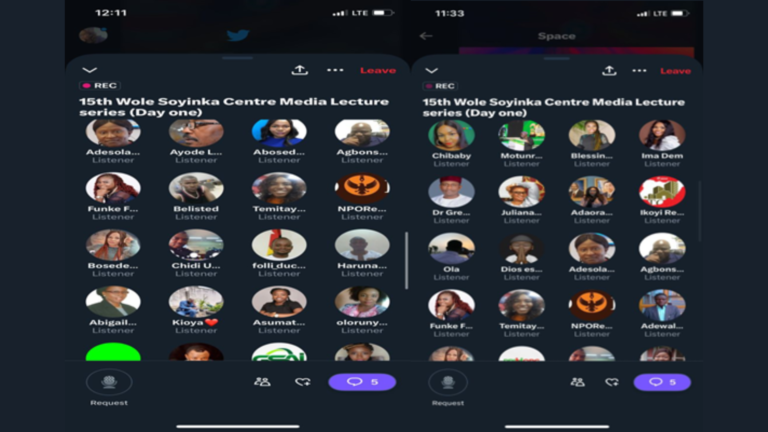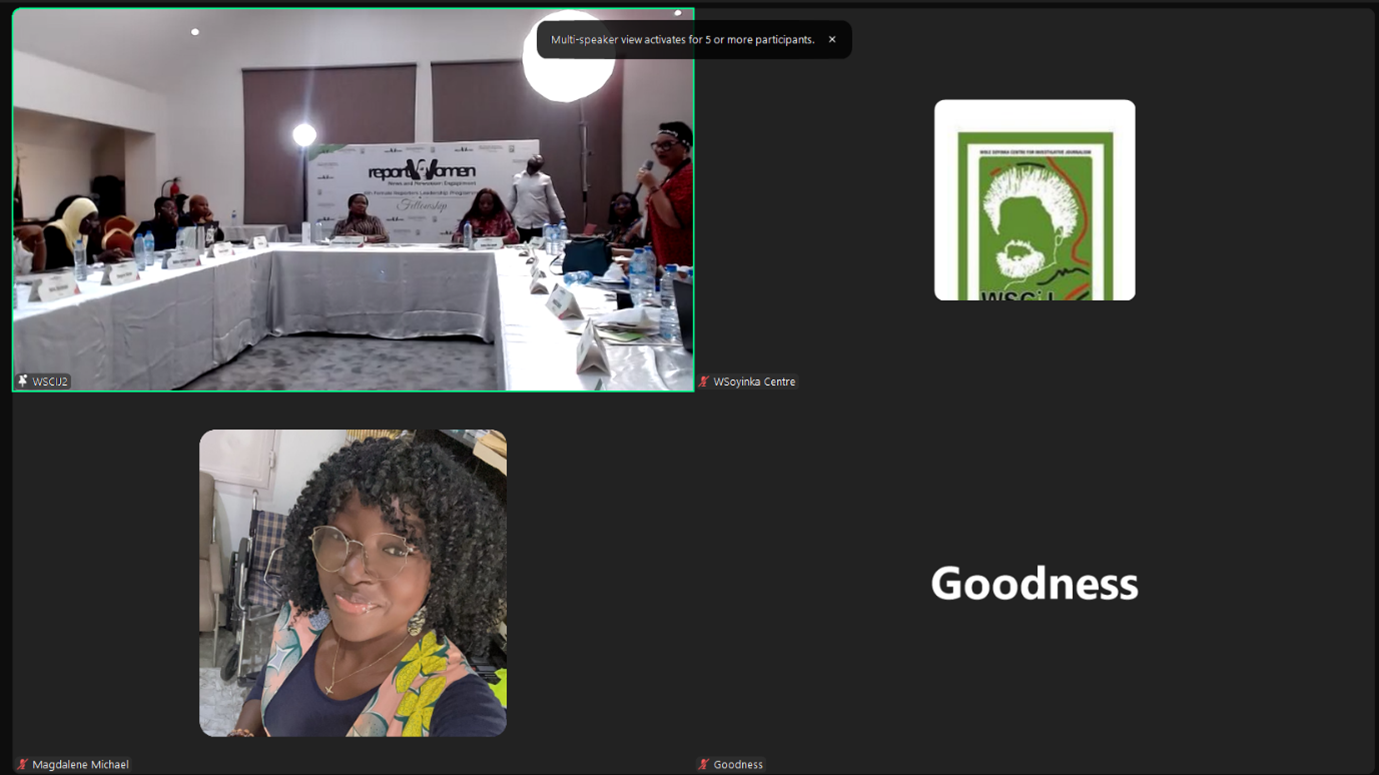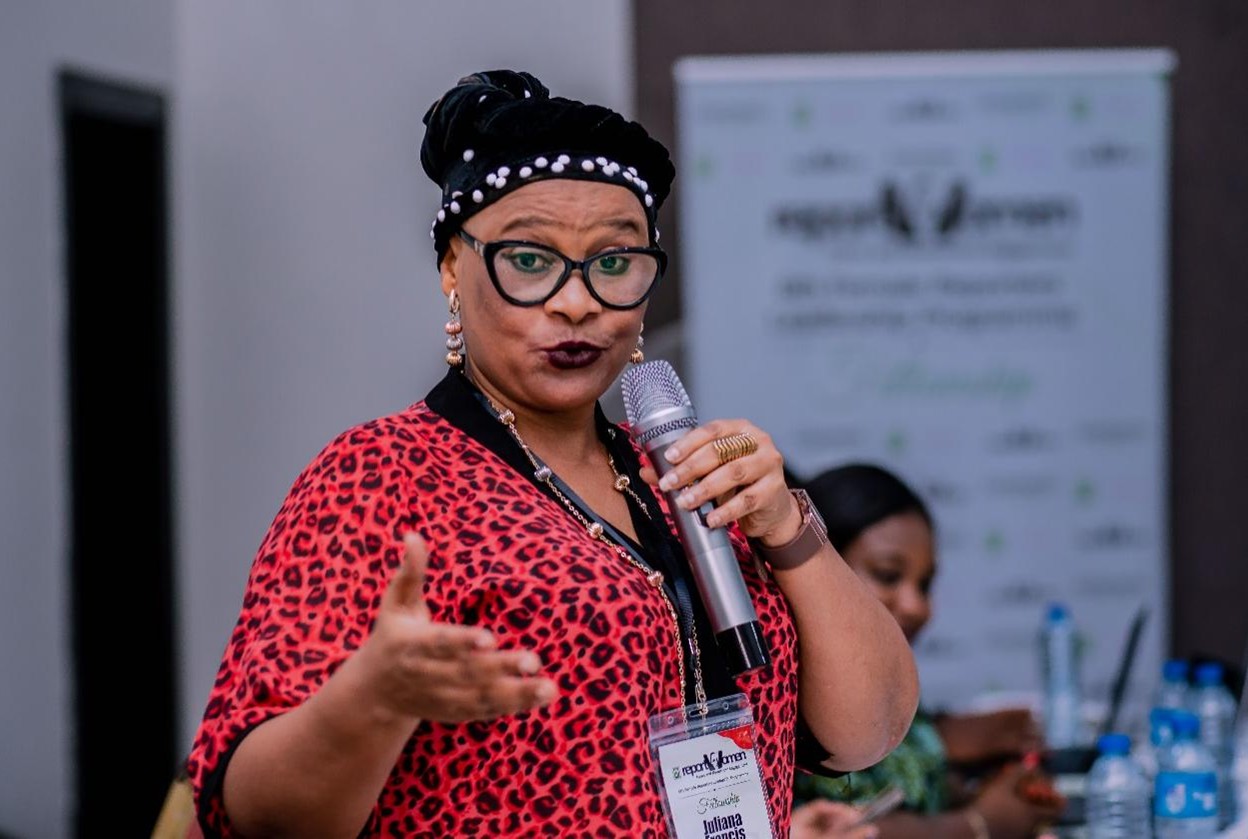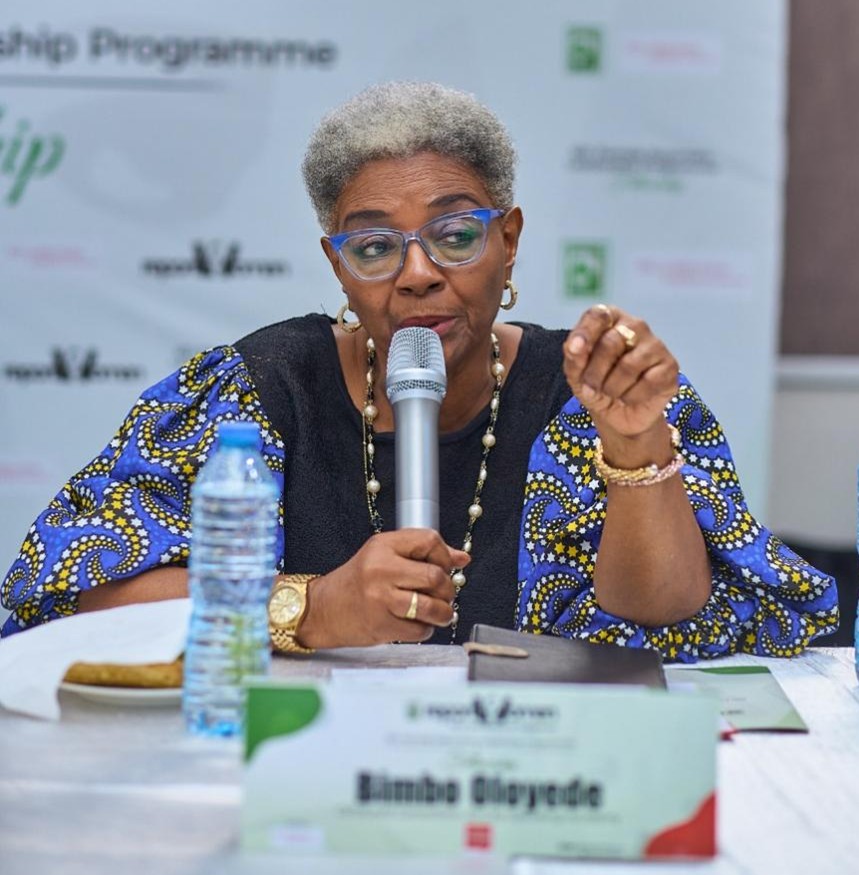Media must build a proper framework that promotes the relationship between democratic stakeholders and improve income generation for long-term sustainability. These were some of the recommendations by panellists on day one of the 15th Wole Soyinka Centre Media Lecture Series while discussing the theme, ‘Building a resilient Nigerian media and democracy’. Organised by the Wole Soyinka Centre for Investigative Journalism (WSCIJ), the virtual event had Balarabe Ilelah, Director General, National Broadcasting Corporation; Adedoja Allen, Managing Director/CEO, City 105.1FM; Christoph Plate, former Head, Konrad-Adenauer-Stiftung (KAS) Media; Tayo Fagbule, Editor at BusinessDay; Anita Egboigbe, Operation Lead, Big Cabal Media and Amaka Okoye, West Africa Correspondent for Deutsche Welle (DW) as panellists.
Fagbule, said the conversation to discuss strengthening the media immediately after the 2023 General elections has become expedient. He noted that civic participation increased as people written off in previous elections got involved, took charge, and made impact. According to him, it led to robust conversations that made it difficult for the people and media to separate signals from noise, especially on social media. The BusinessDay editor said a resilient media must be financially independent. He admitted that the journey to financial sufficiency is like a marathon. Therefore, media houses must cultivate their audience and increase their followership through quality content to spur old and new users to pay for subscriptions. He further explained that media can use a social service model or digitalisation software to generate funds. According to him, BusinessDay witnessed a surge in subscriptions during the Covid-19 lockdown that reduced immediately after the lockdown.
Director General of the National Broadcasting Commission (NBC), Ilelah who was represented by Raphael Akpan, Zonal Director, NBC Lagos commended the Nigerian media for the 2023 election coverage. He revealed that the commission was not out to gag the press but to regulate media content in the public interest. He said the NBC code is a compilation of contributions from industry players and not a phantom document to repress the press. He announced that stakeholders are being contacted for inputs into the ongoing NBC statute review to reflect present realities in the broadcast space. Another panellist, Adedoja, proposed the adoption of qualitative, quantitative, and innovative methodologies by the media for long-term sustainability. She expressed optimism over the uniqueness of the Nigerian media space with endless potential and endless possibilities for growth.
Plate on the other hand was of the opinion that the media must diversify and increase their revenue streams by establishing publishing houses and intentional investments. Corroborating Fagbule, the seasoned journalist with over two decades of experience in the media space said some publishers introduced a paywall in Accra, Ghana, during the Covid-19 pandemic. According to him, homesick Africans in the diaspora are constantly searching local news and the growing middle classes in many African countries want serious and verified journalism and will pay for such information. Amidst the challenges of digitisation of advertisement, repression from state actors, cuts in advertisement budgets, and other challenges, he said the media must embark on soul-searching, self-reflection, and self-critiquing to help reposition the profession.
In her contribution, Eboigbe reckoned that media organisations must design programmes and news to resonate with their target audience within the competitive media space. She said many media owners are not business oriented and unable to explain their product and how it can yield returns to prospective investors interested in profit-making. The media must target investors whose principles align with their organisation’s principles which is sacrosanct to every business engagement, Eboigbe said. While reacting to how media can effectively hold the government to account through collaborations, the 2021 Report Women! Female Reporters Leadership Programme (FRLP) Fellow said alliances exist. Stakeholders must re-strategise and become creative to make these collaborations bigger and better.
Motunrayo Alaka, Executive Director/CEO, WSCIJ, said the two-day event was to discuss and find ways to ensure that both the news media and democracy are strong enough to be around for a long time. She highlighted the fact that the annual lecture was held for the first time on Twitter to acknowledge that digital platforms are the future and had become a public sphere where private people meet to discuss critical and national issues.
The Wole Soyinka Centre Lecture Series, initiated in 2008, examines pertinent issues affecting the news media’s performance in relation to democracy in Nigeria. The tradition of holding the event on 13 July started in 2009 to celebrate Professor Wole Soyinka, who turned 89, on his birthday. In attendance on Day One were members of the media, industry experts, private sector leaders, government ministries and agencies, pressure groups, policymakers, students, and other stakeholders in civil society.








